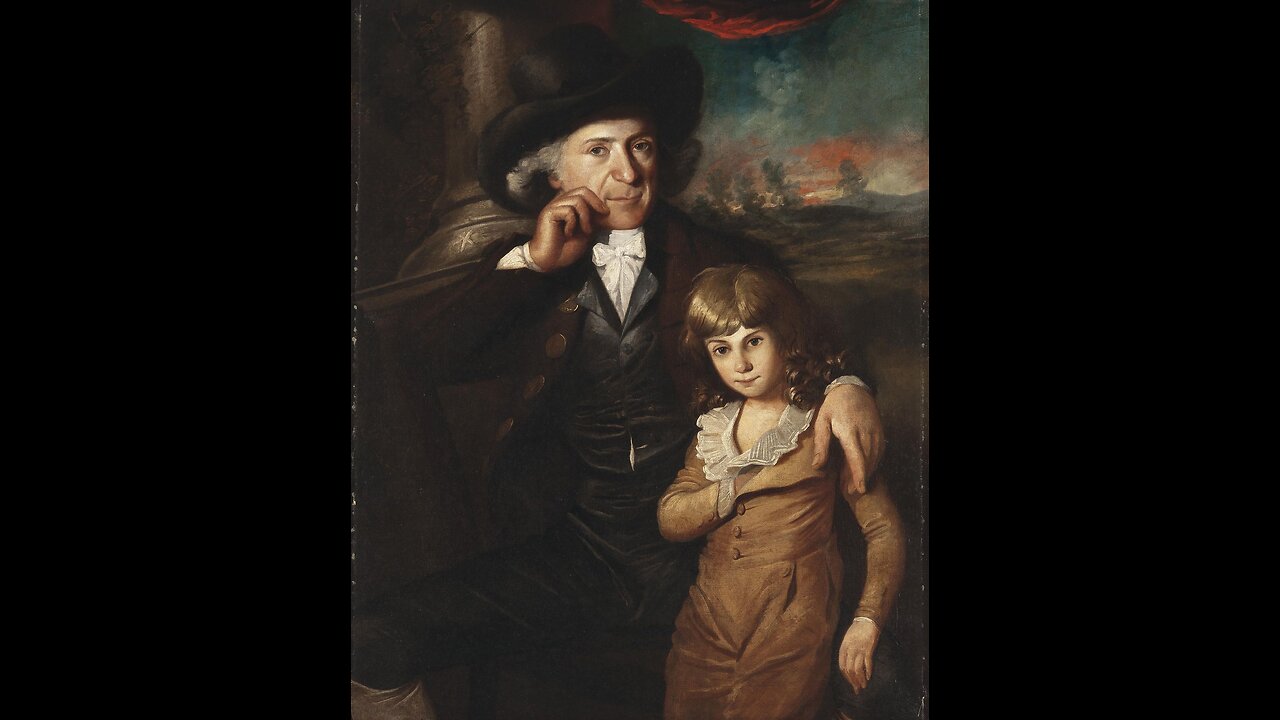Premium Only Content

"Paul Clifford", Chapter 3, by Edward Bulwer-Lytton
I own that I am envious of the pleasure you will have in finding yourself
more learned than other boys,—even those who are older than yourself.
What honour this will do you! What distinctions, what applauses will
follow wherever you go!
-LORD CHESTERFIELD: Letters to his Son.
Example, my boy,—example is worth a thousand precepts.
-MAXIMILIAN SOLEMN.
----
Hey, a chapter with only a little bit of dialog, and the one character who does most of the speaking doesn't have any particular accent written in to his text. Hallelujah!
It is interesting how the author isn't shy about addressing the readers directly. He does that several times in this chapter, and we saw it previously as well. Few fiction authors would dare to do such a thing today!
"two bobs for the Latin, and a sice for the vartue."
Bob we encountered last chapter as a slang term for a shilling. Sice here means six. Six pennies, specifically. Although I can't help but feel like that word should have already been archaic 200 years ago, but maybe not. Or maybe it's part of the argot? There is (or was) a British word for the sixpence coin, a tanner, but for some reason the author went with sice instead. *boggle* The URL below uses the word 'site' in this sentence, where my book clearly uses 'sice', and I'm pretty sure 'sice' is correct given it has the meaning of 'six', and we are referring to six pennies. I have no idea how 'site' would make sense in that sentence, so that's gotta be wrong. I can understand given the obscurity of the word 'sice' why someone editing the work might think it should be something else, but that's why you need an extremely comprehensive dictionary (or google, as the case may be).
I don't understand the reference to Langfanger. If you do, please drop a comment below who is meant by it!
Dr. Keate: A celebrated principal of Eton. Or at least so says the footnote in the book - his wikipedia entry suggests he was an extremely harsh disciplinarian in an attempt to improve the decline in discipline under his predecessor. But it sounds like it didn't really work and the students rebelled, resulting in 80 students getting flogged in one day. And he continued to be the headmaster for another two years after that, if you can believe it. Brutal.
cremona: I believe this is a violin, specifically one produced in the northern Italian city of Cremona, famous for its violin making.
flageolet: a very small wind instrument resembling a recorder but with four finger holes on top and two thumb holes below. Could also be a tin whistle, but that seems extremely unlikely in this case.
And oh look, a long diatribe on how slimy and dishonest the newspapers were 200 years ago! The more things change, the more they stay the same...
The Latin passage, with the translation provided in a footnote in the text:
'Ille per extentum funem mihi posse videtur
Ire poeta, meum qui pectus inaniter angit,
Irritat, mulcet, falsis terroribus implet.'
He appears to me to be, to the fullest extent, a poet who
airily torments my breast, irritates, soothes, fills it with
unreal terrors.
"Doctrina sed vim", etc. = Doctrina sed vim promovet insitam, in English: Instruction enlarges the natural powers of the mind.
If you want the entirety of Horace's lesson, you can find it here: https://www.gutenberg.org/files/46938/46938-h/46938-h.htm#CARMEN_IV_IV_poem But you'll have to provide your own translation...
The picture used is a painting of a nobleman and boy of the 19th century. Nobody seems to know who the painter was, which seems odd given the quality of the painting. Obviously the child is a stand-in for Paul. As to the nobleman, you can fancy it either Peter MacGrawler or Augustus Tomlinson as strikes your fancy.
To follow along: https://www.gutenberg.org/files/7735/7735-h/7735-h.htm#link2HCH0003
-
 LIVE
LIVE
LumpyPotatoX2
8 hours agoKilling Floor 3 + SoulFrame: Co-op Showcase - #RumbleGaming
714 watching -
 2:10:50
2:10:50
vivafrei
9 hours agoEp. 274: Canada's War on Christianity! Is Candace Owens Cooked? SCOTUS, RFK Jr. AND MORE!
94.5K209 -
 38:09
38:09
The Mel K Show
6 hours agoMel K & Tim James | Are Hidden Dangers Lurking in Your Mouth? | 7-27-25
41.2K6 -
 LIVE
LIVE
sophiesnazz
3 hours agoTIME TO WIND PEOPLE UP !socials
96 watching -

GamerGril
4 hours agoDoom Gal Bingo The Finale | Special Boss Bingo
3.42K5 -
 2:22:46
2:22:46
The Connect: With Johnny Mitchell
1 day ago $15.56 earnedOne Man's Mission To Stop Human Trafficking: How A Billionaire Mercenary Saved Hundreds Of Children
67.8K41 -

FoeDubb
4 hours ago🏰KINGDOM MENU:🌳SESHYS & 🎮WITCHER 3 VIBES ON DECK DILLY DILLY!!!
9.2K2 -
 28:43
28:43
Liberty Hangout
4 days agoAnti-Trumpers Don't Know What They're Protesting
64.7K252 -
 LIVE
LIVE
PudgeTV
1 day ago🟠 Gaming on Rumble | Soulframe Early Access Gaming Showcase
126 watching -
 LIVE
LIVE
itsReel
5 hours agoGaming SUNDAY
52 watching